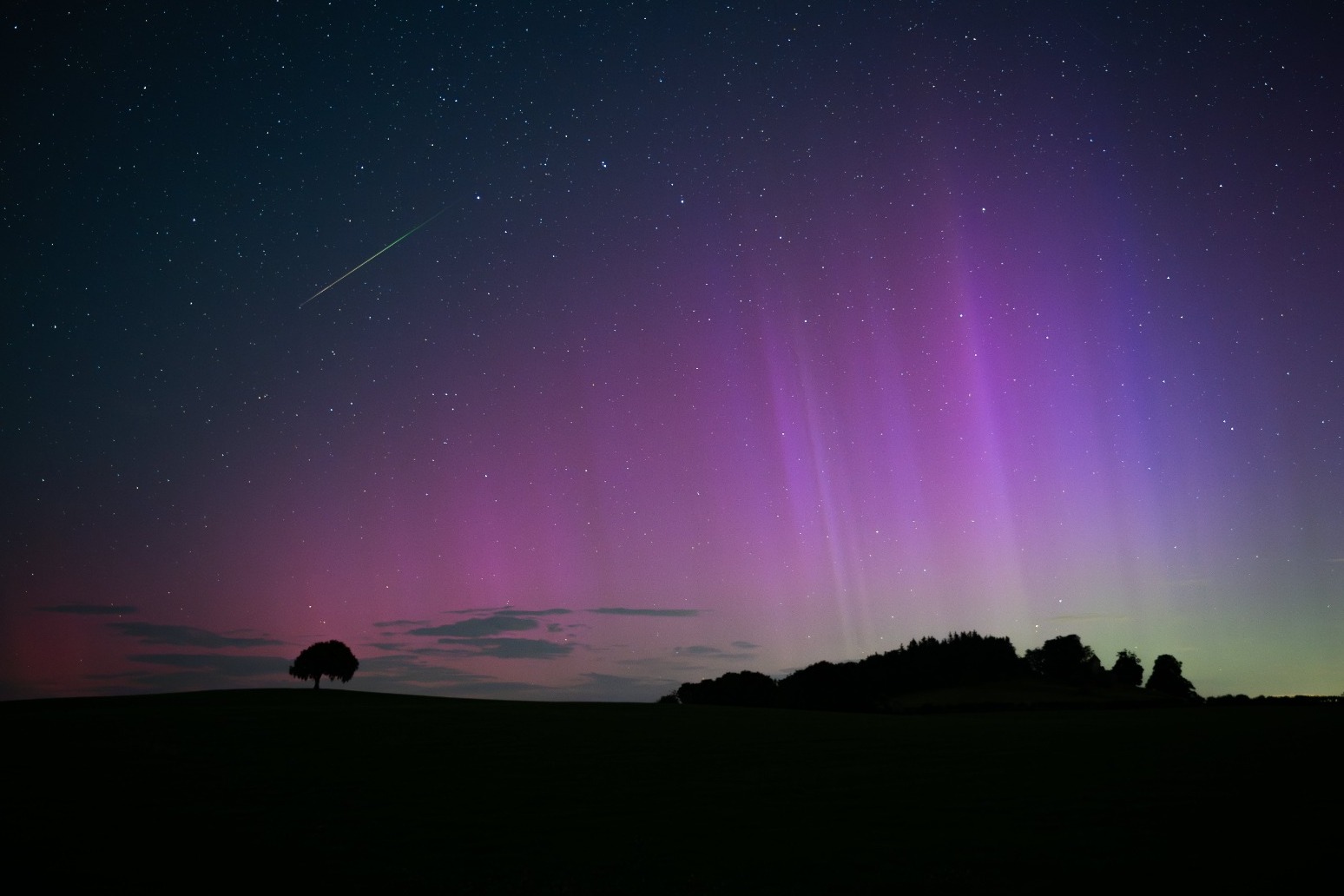Listeners:
Top listeners:
-
 play_arrow
play_arrow
WBPL – LIVE As Blackpool As You Are
 Adele - Easy On Me
Wow I love this song! Thank you for your amazing music!
Aria R.
Adele - Easy On Me
Wow I love this song! Thank you for your amazing music!
Aria R.
 Deep Purple - Smoke On the Water
Shoutout to the rainbow in my life, Gina!
Orion S.
Deep Purple - Smoke On the Water
Shoutout to the rainbow in my life, Gina!
Orion S.
 Luna Park - Space Melody (Radio Version)
Calling my cosmic companion, Jane! Hit play and let's embark on a musical space journey.
Luna Park - Space Melody (Radio Version)
Calling my cosmic companion, Jane! Hit play and let's embark on a musical space journey.


Shooting stars will light up the sky as the Perseid meteor shower puts on a celestial display on Monday night.
The display could produce up to 100 meteors an hour, as the Earth passes through a cloud of cometary dust.
The shower should be visible across the UK from around sunset on Monday until the early hours of Tuesday, but the best time will be from midnight.
The event is associated with the dusty debris left by Comet Swift-Tuttle, which orbits the sun once every 133 years.
The meteoroids from the comet, mostly no bigger than a grain of sand, burn up as they hit the Earth’s atmosphere at 36 miles per second, to produce a shooting stream of light in the sky.
Jess Lee, astronomy education officer at the Royal Observatory Greenwich, said: “This shower is known for a particularly high rate of meteors (up to 100 per hour if we’re lucky) and particularly bright meteors.
“This year, due to the current phase of the Moon, the sky should be dark enough for many of the shooting stars to be visible.”
She added that the best view of the shower would be in areas that had clear skies and that were away from light pollution.
Ms Lee said: “If you do want to spot some meteors, try to go out after midnight, as far from any streetlights as you can, to an area with lots of the sky visible if possible.
“It’s then just a case of getting comfortable, looking up, and waiting.”
The Perseids are named after the constellation of Perseus, because if you trace the meteors back across the sky they appear to have come from that area.
Published: by Radio NewsHub
Written by: admin
-
Recent Posts
- Kate Forbes Says Independence For Scotland Is An Economic Necessity
- Prince Harry Returning To The UK For Charity Visits With Donation To Children In Need
- Harry Returning To The UK For Charity Visits With Donation To Children In Need
- Insecure Work Holding Back Economy
- Joel Dommett Hails Huge Shows In Running For National Television Awards
Chart
-

1
Jonas Blue, Liam Payne And Lennon Stella
Polaroid
-

2
Tanja Thomas
One Way Ticket (To The Blues)
-
3
The Monkees, 01.01
I'm A Believer
-
Top popular

Difficult day as last blast furnace shuts down at Port Talbot steelworks

UK Government charters flight for Britons in Lebanon

Downton Abbey creator Julian Fellowes Dame Maggie Smith was blessing in my life

Household energy bills to rise for winter as Ofgem lifts price cap

Ringleader of plot to smuggle 76m of cocaine into UK hidden in bananas jailed

WHO WE ARE
We are bringing the fun back to the seaside city, and we live and love EVERYTHING Blackpool!
CONTACT
- info@wbplradio.com
Copyright The Mediasite UK - 2024.



